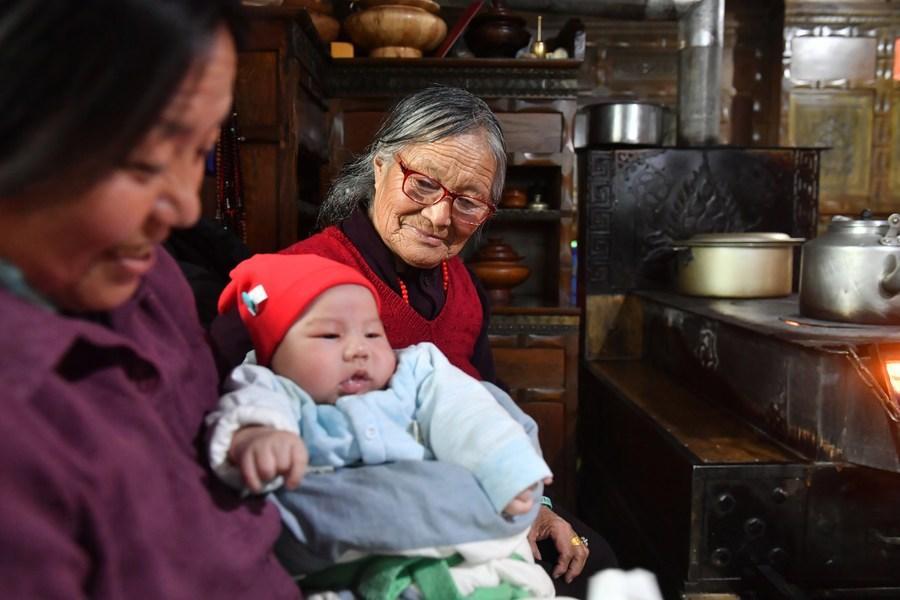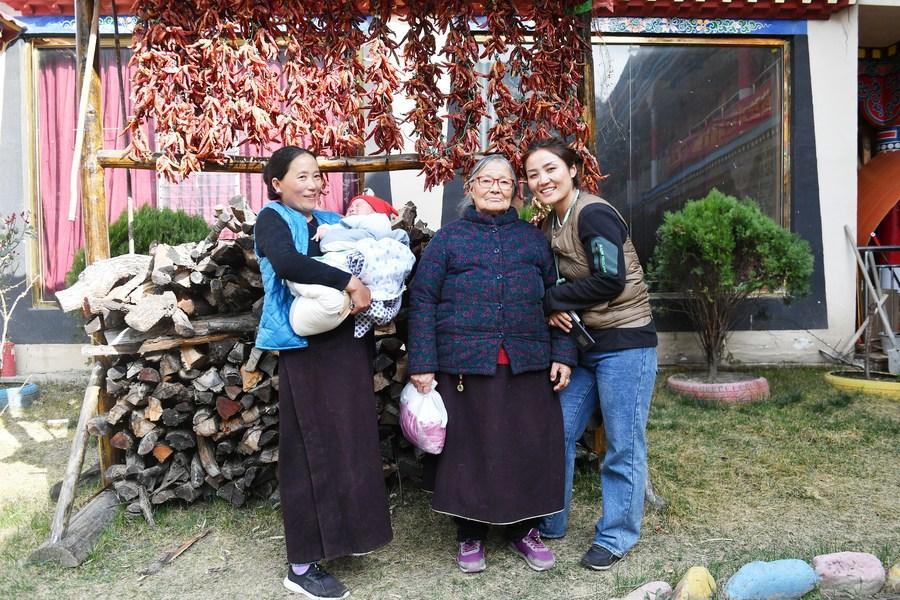Source:Xinhua 2021年05月31日 16:42

Photo shows a portrait of former serf Bulu at home in Tunbei Village of Nyingchi, southwest China's Tibet Autonomous Region, March 28, 2021. (Xinhua/Sun Ruibo)
LHASA, April 15, 2021 (Xinhua) -- Bulu, an 80-year-old villager in Tunbei Village, was once a serf in old Tibet.
In old Tibet, Bulu and family members had to flee their hometown and beg for food due to heavy labor imposed on them. "The serfs were constantly working and being beaten," Bulu recalled life back then.
Only a little tsamba and radish were served for three meals a day. At night, she had to sleep with dog to keep warm.
After the democratic reform in 1959, Bulu and her family were given land, cattle and sheep. "From then on, everyone sat around the table and became masters of themselves," Bulu said.

Former serf Bulu holds her grandson at home in Tunbei Village of Nyingchi, southwest China's Tibet Autonomous Region, March 28, 2021. (Xinhua/Sun Ruibo)

Former serf Bulu (R) watches her grandson at home in Tunbei Village of Nyingchi, southwest China's Tibet Autonomous Region, March 28, 2021. (Xinhua/Sun Ruibo)

Former serf Bulu (C) poses for a photo with family members at home in Tunbei Village of Nyingchi, southwest China's Tibet Autonomous Region, March 28, 2021. (Xinhua/Sun Ruibo)

Former serf Bulu is seen at home in Tunbei Village of Nyingchi, southwest China's Tibet Autonomous Region, March 28, 2021. (Xinhua/Sun Ruibo)